MSc Psychology (Conversion)
A BPS-accredited course that provides eligibility for chartered membership of the British Psychological Society. An exciting programme that opens up a world of career opportunities.

Entry requirements
A 2:1 degree in any subject
International students would normally have a minimum IELTS score of 6.5
Please note that this conversion programme is unsuitable for applicants who have previously studied a bachelor's degree in Psychology.
Consideration will be given to applicants whose grades are slightly lower than the programme's entry requirements, if they have a relevant postgraduate qualification.
UCAS code Apply to Marjon
UCAS institution code P63
Duration One year full-time or two years part-time
Any questions about postgraduate study at Marjon?
Contact Rachel Bailey-Lewis, our Student Recruitment Officer (Postgraduate).
Course Summary
MSc Psychology is designed for students from non-psychology backgrounds and provides a breadth of knowledge in the theories and methods of psychological science. It will provide you with a platform to pursue a career in psychology, along with transferable skills and knowledge that can be used in many different settings.
You will learn the theories of social, cognitive, developmental, biological and individual differences psychology, and develop the skills to understand and apply the research on which these theories are based. You will also learn how to design research studies and analyse data to provide valid answers to meaningful psychological research questions.
The core curriculum is taught in small groups and workshops enabling discussion and in addition there are online activities, including as on-demand lectures and data analysis activities. All assessment is by coursework and not only reviews your knowledge but offer opportunities to develop skills for the modern workplace.
Why this course at Marjon?
Small group sizes enable rich discussion and learning.
Friendly, approachable and supportive lecturers who will get to know you
Designated psychology space for group and data collection work
A small, quiet campus, with lots of green space
Top. 2 Uni in England for student satisfaction (2024)
Modules for this course
1st Year
The brain & cognition
People & relationships
Development across the lifespan
Conceptual & historical issues in psychology
Theory & Method in Psychological Research
Empirical project
Current students say...
Nick Parr
“I’m enjoying the variety of topics, I’m growing my mind and people are really listening. The lecturers are really helpful and care for their students and the Student Support service is very good. The university is small, with a sense of community. I have found that the course is very helpful to my personal development and some topics associate with my life experiences. A brilliant place to learn.”
Dawn Geary
“I have really enjoyed learning about the different aspects of psychology, from leadership and identity through to neuropsychology. This course has made me appreciate how different disorders can impact on people’s lives. I have also been able to develop my critical analysis and research skills.”
Hazel Dickinson
“We’re learning about how social identity and societies influence people. I enjoyed looking at a brain in the lab; it was great to do something practical. I’ve learnt how to be more critical while analysing things. I’ve also become more broad-minded and have developed my lateral thinking skills.”
This course is perfect if you're curious about
Has the popularisation of mindfulness reduced its impact?
How does dementia impact on communication and language?
Does smiling influence how fast someone runs?
Can language analysis help detection of potential criminals?
Can psychopaths change?
Does lack of coffee or cravings for caffeine impair memory?
Ask a student
What might you become?
Students engaging in the MSc Psychology (Conversion) are interested in careers as chartered psychologists, specialising in areas such as clinical, educational, health, sport, counselling, forensic, occupational, neuro or research psychology.
Our accredited course provides eligibility for graduate basis for chartered membership of the BPS, this is the pathway to further professional psychology careers. Key transferrable skills will enable you to apply for careers in Human Resources, Counselling, Education and many more.
Previous students have continued studies in Clinical, Counselling and Educational Psychology, with some pursuing their love of research and engaging in a PHD. Many students are now successfully employed within charities, educational and support settings and the prison service.
Accreditation
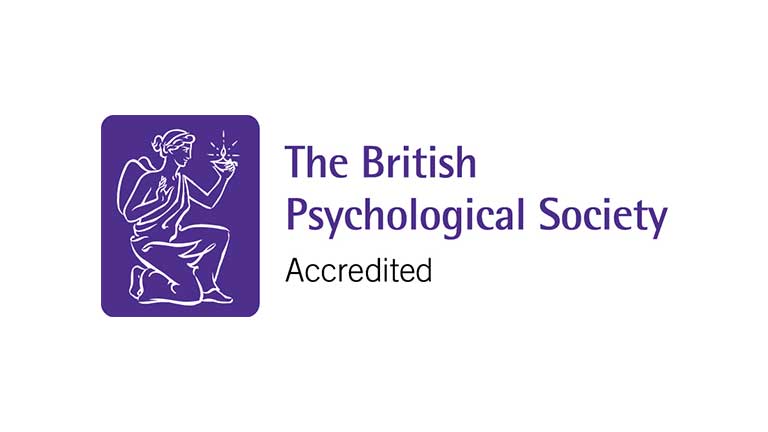
The British Psychological Society (BPS)
On completion of this course, graduates will be eligible for graduate membership of the BPS. Membership of the BPS enables students to access a wide range of resources, influence the society and the future of psychology, and assist in raising the profile of psychology and psychological practice in the UK and internationally (BPS 2019). Individual student membership costs £26 a year (2023/2024 cost), students should refer to www.bps.org.uk for updated costs.
How you’ll be taught and assessed?
How will you be taught?
You are taught on campus, with experienced and passionate lecturers in their field of expertise. Group sizes are small and teaching is varied with lecture, discussion, observations, group work and individual time allocated.
How will you be assessed?
A range of assessments including essays, reports, portfolio, presentation and final dissertation.
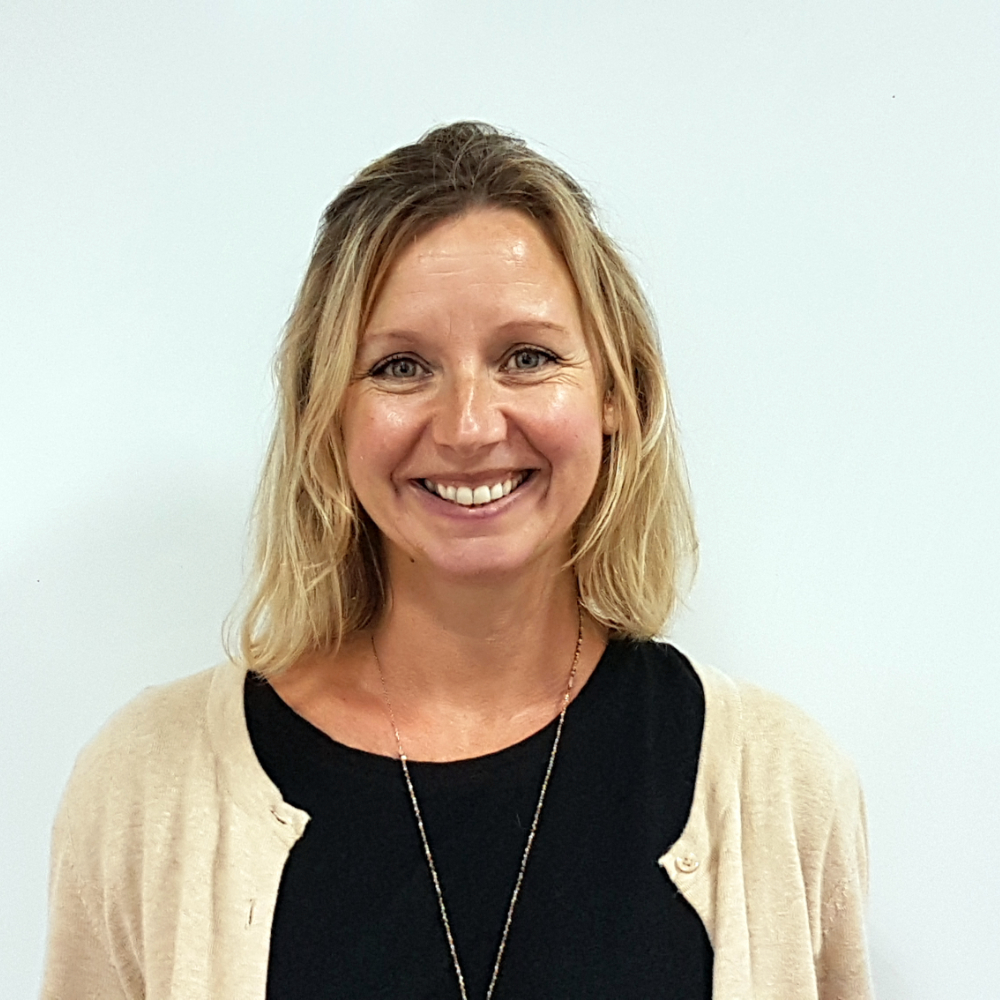
Carina Robertson is the programme lead for MSc Psychology (conversion). She teaches across a range of undergraduate and post-graduate psychology programmes. Her teaching is mainly focused around social psychology and mental health within the discipline and how these can be applied to the world we live in. Carina is a Chartered Counselling Psychologist with the Health and Care Professions Council. She has worked as a clinical practitioner on a one-to-one and group basis, across a range of settings, including primary care, the police and private practice for over 30 years. Specialist interests and expertise include: PTSD, Trauma, Eating Disorders. She enjoys and is passionate about bringing psychological understanding to our daily lives.
Fees and funding
Fees UK students: £8,500
Fees for International students: £14,600
This fee covers your tuition and access to course-specific equipment and facilities, as well associated services including access to the library, study skills support, IT support, student support and wellbeing services and membership of the Student Union. There may be additional costs by course.
Funding available for this course
Our Student Funding Advisors offer confidential and impartial advice about your funding options.
Learn moreLecturers
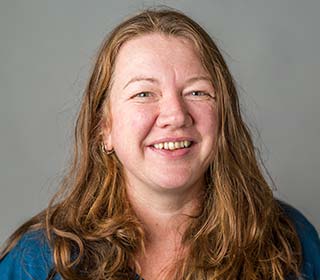
Hazel is an Associate Professor in Psychology. She teaches community psychology, neuropsychology, qualitative research methods and conceptual and historical issues in psychology.
She is a chartered member and associate fellow of the British Psychological Society (BPS), and a senior fellow of the HEA.
She is a member of the BPS Member Board and UEC. She is the manager of the Marjon Memory Cafe and supports students in providing wellbeing interventions for people across Plymouth and the local area.
Her interests include identity, student wellbeing and academic buoyancy, and student leadership. She is currently supervising 3 PhD students on projects relating to mental health, embodiment of cognition and supporting transitions in early years.
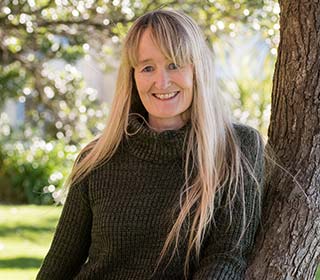
Dr Katheryn Edwards is a BPS Chartered Psychologist and Fellow of the Higher Education Academy. Her PhD investigated a dual process account of human mind-reading. Katheryn teaches across a number of modules relating to cognitive psychology, developmental psychology, research methods and study skills.

Jonathan specialises in applied neuropsychology and has a research background investigating the therapeutic use of gamified cognitive training for young people with visuocognitive difficulties caused by brain injury or neurodivergence. He is a Fellow of the Higher Education Authority and teaches across a number of modules on the undergraduate and postgraduate psychology programmes related to cognitive neuroscience, neuropsychology, and applied research methods.
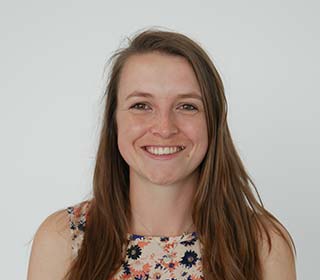
Rosanna specialises in the psychology of sporting performance, examining the critical perceptual cognitive factors that enable elite performance. Her research fields are cognitive psychology, performance psychology and quantitative methods.




